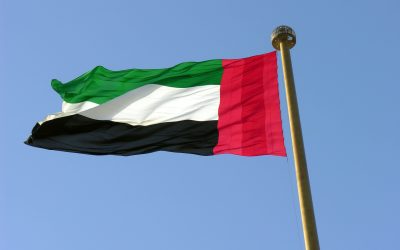During the WebSummit, the Portuguese Prime Minister announced that his Government would be analysing the ending of the Golden Visa. The Prime Minister, and later the Minister of Home Affairs, argued that the residency by investment program “had served its purpose, and most likely its maintenance is not justified”.
When pressed by journalists, the Prime Minister defended the continuation of the policy of attracting investors in Portugal, particularly in the technological sector (through the Digital Nomad Visa). However, he made a distinction concerning the regime of the Golden Visa, in which one gets permission to reside in the country following specific types of investments, such as purchasing an expensive piece of real estate.
“There are programs that we are currently reevaluating, and one of them is the gold visa program, which has probably already fulfilled its function, and at this moment, there is no justification to keep it,” The Prime Minister added that “one of the programs that we are currently reevaluating is the gold visa program, which has probably already fulfilled its function, and at this moment, there is no justification to keep it,”
The end of the Portugal Golden Visa has been a measure that has been demanded by the Portuguese political left, most notably by the Left Bloc (member of The Left in the European Parliament – GUE/NGL), which considers this regime to be a factor in the increase in housing prices and a source of justice problems due to the suspicion of money laundering.
Notwithstanding the above, the Prime Minister’s party, the Socialist Party (member of the Progressive Alliance of Socialists and Democrats – S&D), vetoed proposals by the Left Bloc to abolish the Golden Visa during the discussion of the State budget for FY2023.
For now, the Portuguese Government is “evaluating… all the hypotheses”, and according to the Portuguese Prime Minister, once it “finishes the assessment, then it will make choices — and the hypotheses become decisions.”
The above comments, made by the Portuguese Prime Minister, were criticised by several stakeholders, including the Regional Government of Madeira (the Autonomous Regions have no legislative powers on nationality nor migration), the Portuguese Association of Real Estate Developers and Investors, the Chamber of Commerce and Industry of Madeira, Pestana Group (Portugal’s biggest hotel chain), and the leaders of the Madeiran Socialists and the Madeiran Social-Democrats ( in the Portuguese Parliament, MPs Carlos Pereira and Sara Madruga da Costa, respectively.
Figures provided by the Portuguese Immigrants and Borders Service (SEF) indicate, more specifically, the following over the last three years (2020, 2021, and the first nine months of 2022):
- 2020: 11.82 golden visas accepted, which reflected a total investment of 646 million (588 million in real estate investment);
- 2021: 865 golden visas accepted, which reflected a total investment of 460 million euros (409 million in real estate);
- 2022 (from January to September): 926 golden visas accepted, which reflected a total investment of €464.8 million
- In 2014, a little over a year and a half after implementing this scheme, 1,526 golden visas were given, resulting in an investment of 921 million euros.
MCS and its professionals will closely follow the matter of the potential extinction of the Golden Visa program and keep our clients informed on the matter.
This article is provided for general information purposes only and is not intended to be, nor should it be construed as, legal or professional advice of any kind. Should you have any questions, please do not hesitate to contact us.

Miguel Pinto-Correia holds a Master Degree in International Economics and European Studies from ISEG – Lisbon School of Economics & Management and a Bachelor Degree in Economics from Nova School of Business and Economics. He is a permanent member of the Order of the Economists (Ordem dos Economistas)… Read more




